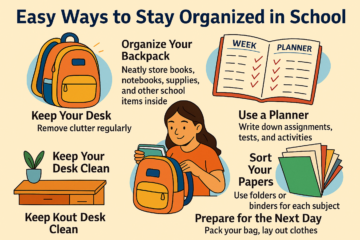Education is a collaborative effort, and when parents and tutors work together, students benefit the most. Parents provide foundational support, while tutors bring expertise and structured guidance. However, achieving the best results requires proper communication, mutual understanding, and a shared goal of academic success. This blog explores how parents and tutors can collaborate effectively to enhance a child’s learning experience.
Why Collaboration Between Parents and Tutors Matters
1. Enhancing Learning Beyond the Classroom
A tutor can guide a student through difficult subjects, but real progress happens when learning extends beyond tutoring sessions. Parents play a crucial role in reinforcing what is taught by encouraging practice at home.
2. Providing a Supportive Learning Environment
While tutors focus on academic growth, parents ensure the child has a conducive learning environment. A quiet study space, set routines, and emotional support help students remain focused.
3. Building Confidence and Motivation
Parents and tutors who work together can instill confidence in students. Encouragement from parents and structured lessons from tutors help a child feel motivated and capable of handling challenges.
Effective Ways Parents and Tutors Can Collaborate
1. Open and Regular Communication
- Progress Updates: Tutors should provide parents with regular feedback on strengths and areas needing improvement.
- Parental Insights: Parents can share observations about their child’s learning habits, struggles, or behavioral changes.
- Use of Technology: Creating WhatsApp groups or using apps like Google Classroom can facilitate seamless communication.
2. Setting Clear Goals and Expectations
- Academic Goals: Define what the child needs to achieve—whether it’s improving grades, mastering a subject, or preparing for an exam.
- Study Plans: Tutors and parents should discuss a structured study plan, considering the child’s schedule and learning pace.
- Parental Involvement: Decide how parents can assist, such as helping with homework or discussing lessons at home.
3. Encouraging Consistency in Learning
- Daily Practice: Parents should encourage children to revise what they learn during tutoring sessions.
- Homework and Assignments: Tutors should assign meaningful tasks, and parents should ensure they are completed.
- Balanced Routine: Maintain a balance between study time and relaxation to prevent burnout.
4. Addressing Challenges Together
- Identifying Struggles: If a child is struggling with a subject, tutors and parents should collaborate to find solutions.
- Adjusting Teaching Methods: If a particular teaching approach isn’t working, discussing alternative strategies can be beneficial.
- Emotional Support: Parents should provide encouragement, while tutors can help build resilience in learning.
5. Creating a Positive Learning Mindset
- Celebrating Small Wins: Acknowledge progress, no matter how small, to keep the child motivated.
- Fostering Curiosity: Tutors can introduce creative learning methods, while parents can encourage exploration outside academics.
- Avoiding Pressure: Instead of focusing only on results, emphasize effort and improvement.
Success Stories: The Power of Collaboration
Many students have significantly improved their academic performance due to strong parent-tutor collaboration. For example:
- A struggling math student saw a 40% improvement in test scores after parents and tutors coordinated a structured study plan.
- A child who disliked reading developed an interest in books after parents and tutors introduced storytelling sessions at home.
- Students preparing for competitive exams gained better time management skills due to consistent reinforcement by both tutors and parents.
Conclusion
When parents and tutors work together, they create a powerful support system for the student. Effective communication, goal setting, consistency, and encouragement are key factors in achieving academic success. By fostering this partnership, parents and tutors can ensure that children receive the best possible learning experience and develop lifelong skills for success.




